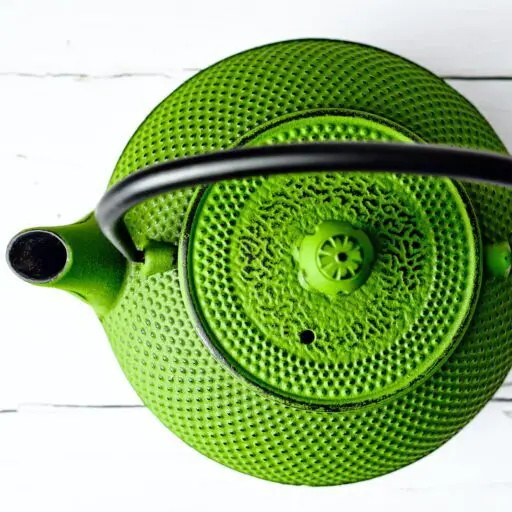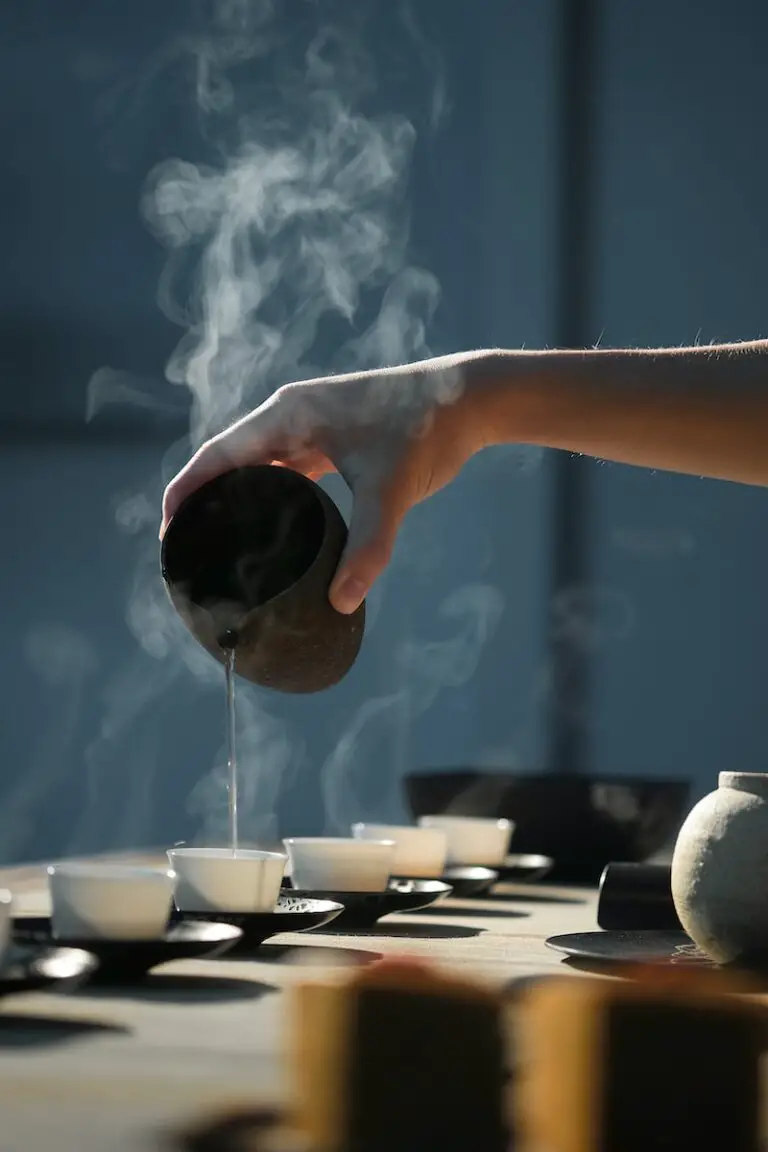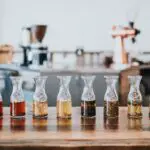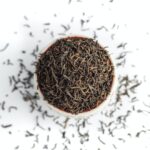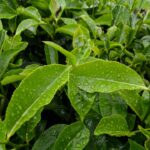Support our educational content for free when you purchase through links on our site. Learn more
What Is America’s Favorite Tea Brand? ☕️ Top 10 Revealed (2026)
Did you know that 85% of tea consumed in the U.S. is iced? From sweet Southern brews to artisanal loose-leaf blends, America’s tea culture is as diverse as its people. But which brand truly holds the title of America’s favorite? Is it the classic Lipton that’s been a pantry staple for decades, or do boutique brands like Steven Smith Teamaker and Firebelly Tea steal the spotlight with their craft and creativity?
In this deep dive, we’ll spill the tea on the top 10 brands that Americans love, exploring everything from bold flavor profiles and ethical sourcing to packaging that catches your eye. Plus, we’ll reveal a surprising “Luxury King” brand that’s quietly dominating prestigious hotels across the country. Ready to find your perfect brew? Let’s steep into the story!
Key Takeaways
- Lipton remains America’s most widely consumed tea brand, favored for its consistency and accessibility, especially for iced tea lovers.
- Bigelow and Celestial Seasonings offer family-owned authenticity and herbal wellness blends that resonate deeply with health-conscious consumers.
- Artisan brands like Steven Smith Teamaker and Firebelly Tea are redefining American tea culture with small-batch quality and bold, innovative flavors.
- Packaging, flavor, health benefits, and sustainability are key factors that make a tea brand a true American favorite.
- Regional preferences vary widely, with the South favoring sweet iced tea and urban centers embracing specialty loose-leaf teas.
- Harney & Sons is the “Luxury King” of American tea, quietly served in prestigious hotels and loved by connoisseurs.
Curious to explore these brands and find your own favorite? Keep reading for detailed reviews, insider tips, and where to buy America’s best teas online and in-store!
Table of Contents
- ⚡️ Quick Tips and Facts About America’s Favorite Tea Brand
- 🍃 The Rich History and Evolution of Tea in America
- ☕️ 1. Top Contenders: America’s Favorite Tea Brands Revealed
- 🌿 2. Exploring Artisan and Boutique American Tea Brands
- 🍵 3. What Makes a Tea Brand America’s Favorite?
- 🛒 4. Where to Buy America’s Favorite Tea Brands Online and In-Store
- 🤔 5. Do You Have a Favorite Teamaker? How to Choose Your Perfect Brew
- 🎉 Fun Facts and Surprising Stats About Tea Drinking in the USA
- 🔚 Conclusion: Brewing Up America’s Tea Love Story
- 🔗 Recommended Links for Tea Lovers
- ❓ FAQ: Your Burning Questions About America’s Favorite Tea Answered
- 📚 Reference Links and Sources
⚡️ Quick Tips and Facts About America’s Favorite Tea Brand
Before we dive into the deep end of the tea pot, let’s look at the “steep” reality of the American tea market. Whether you’re a fan of a brisk morning brew or a chilled glass of sweet tea on a porch in Georgia, these facts will give you something to chew on (or sip on!).
| Feature | The “Big Box” Favorites (Lipton, Bigelow) | The Artisan Contenders (Harney & Sons, Smith Teamaker) |
|---|---|---|
| Primary Format | Standard Paper Tea Bags | Silk Sachets or Loose Leaf |
| Flavor Profile | Consistent, Bold, Tannic | Complex, Floral, Nuanced |
| Price Point | Budget-Friendly | Premium/Luxury |
| Availability | Every Grocery Store in the USA | Specialty Shops & High-End Online |
| Best For | Daily Iced Tea & Quick Caffeine | Mindful Sipping & Gifting |
- The “Favorite” Paradox: While Lipton sells the most volume, brands like Bigelow and Harney & Sons often rank higher in consumer loyalty and “best tasting” polls.
- Iced Tea Dominance: A staggering 85% of tea consumed in the U.S. is served cold.
- The Tea Bag Revolution: Did you know the tea bag was an American accident? Thomas Sullivan sent samples in silk bags in 1908, and customers dropped them straight into the water! 😲
- Health First: Many Americans choose tea for its Health Benefits of Tea, specifically for antioxidants and stress relief.
🍃 The Rich History and Evolution of Tea in America
To understand what makes a brand “America’s favorite,” we have to look back at our somewhat rebellious relationship with the leaf. If you want to see how these brands stack up against global giants, check out our guide on The 15 Biggest Tea Brands in the World You Must Know (2026) 🍵.
American tea culture didn’t start with a pinky in the air; it started with a splash—specifically, the 90,000 pounds of tea dumped into Boston Harbor in 1773. This act of defiance made coffee the “patriotic” choice for a while, but tea never truly left our hearts.
In the 19th century, green tea from Japan was actually the most popular variety until World War II shifted our preferences toward black tea. The 1904 World’s Fair in St. Louis gave us two massive innovations: Iced Tea (perfected by Richard Blechynden) and the realization that Americans love convenience.
Today, we are seeing a “Third Wave” of tea. We’re moving past the dusty fannings of the 1950s and into a world of Specialty Blends and single-origin leaves. But which brand actually wears the crown? Let’s look at the heavy hitters.
☕️ 1. Top Contenders: America’s Favorite Tea Brands Revealed
We’ve put our taste buds on the line to rate the brands that dominate American pantries. Here is how the “Big Five” stack up according to our expert panel at Tea Brands™.
Brand Comparison Rating Table
| Brand | Flavor Intensity (1-10) | Packaging Design (1-10) | Variety (1-10) | “American Classic” Factor |
|---|---|---|---|---|
| Lipton | 6 | 5 | 7 | ✅ The Icon |
| Bigelow | 8 | 7 | 9 | ✅ Family-Owned |
| Twinings | 7 | 8 | 8 | ❌ British Roots |
| Tazo | 9 | 8 | 7 | ✅ Modern/Bold |
| Celestial Seasonings | 5 (Herbal focus) | 10 | 9 | ✅ The Hippie Hero |
Lipton: The Classic Household Name
If you walk into any diner from Maine to California, you’re likely getting Lipton. Marketed explicitly as Lipton America’s Favorite Tea, it is the “Old Reliable” of the tea world.
- Pros: Incredibly consistent; perfect for large batches of Southern sweet tea.
- Cons: Can be overly tannic (bitter) if over-steeped; lacks the nuance of whole-leaf tea.
Twinings: The British Favorite That Conquered America
Though its heart is in London, Twinings is a staple in U.S. supermarkets. They brought us the Earl Grey we all know and love. We find their English Breakfast to be the gold standard for a “supermarket” morning brew.
- 👉 Shop Twinings on: Amazon | Walmart | Twinings Official Website
Tazo Tea: Bold Flavors for the Modern Palate
Founded in Portland, Oregon, Tazo was the brand that made tea “cool” again in the 90s (thanks in part to its long partnership with Starbucks). They don’t do “subtle.” Think spicy Chai and punchy Zen green tea.
- Check out our Tea Brand Spotlights for a deeper look at Tazo’s edgy marketing.
Bigelow Tea: Family-Owned and Proud
If we had to pick a brand that feels most “American,” it’s Bigelow. Based in Connecticut and still family-run, they changed the game with “Constant Comment”—a blend of black tea, orange peel, and sweet spices.
- Fun Fact: Ruth Bigelow created the recipe in her kitchen in 1945!
Celestial Seasonings: Herbal and Wellness Wonders
Based in Boulder, Colorado, this brand owns the Herbal Tea market. From the sleepy bear on the Sleepytime box to the vibrant Zinger series, they proved that tea doesn’t even need tea leaves (Camellia sinensis) to be a hit.
🌿 2. Exploring Artisan and Boutique American Tea Brands
While the big names win on volume, these boutique brands are winning on quality. If you’re looking for the “best” rather than just the “most popular,” this is where you should be looking.
Steven Smith Teamaker: Crafting Excellence
The late Steven Smith was the “Steve Jobs of Tea.” After founding Stash and Tazo, he created his magnum opus in Portland.
- The Experience: Each box has a batch number you can track online to see the exact origin of your leaves.
- Our Recommendation: Try Lord Bergamot—it’s arguably the best Earl Grey produced on American soil.
- 👉 Shop Steven Smith on: Amazon | Smith Tea Official Website
Herbs & Kettles: Organic and Sustainable Choices
Founded by Dr. Poorvi Chordia, this brand focuses on single-batch Indian teas. They are a bridge between the heritage of Indian tea gardens and the American consumer’s desire for transparency. Their Rose Cardamom Chai is a sensory explosion! 🌹
Firebelly Tea: Bold Blends with a Story
Founded by David Segal (the man behind DAVIDsTEA), Firebelly is all about 21st-century tea. No artificial flavorings, compostable packaging, and blends designed for modern life (like “After Dinner Mint”).
Song Tea & Ceramics: A Fusion of Tea and Art
For the true connoisseur, Song Tea in San Francisco offers rare, experimental teas. This isn’t your grandmother’s tea bag; this is high-end oolong and aged pu-erh that requires a gaiwan and a bit of patience.
🍵 3. What Makes a Tea Brand America’s Favorite?
Is it the taste? The price? Or the feeling of nostalgia? We believe it’s a “Perfect Storm” of four factors:
- Flavor Profiles That Win Hearts: Americans generally prefer bold, recognizable flavors. While a tea taster might look for “wet stone” or “orchid” notes in a high-mountain oolong, the average American consumer wants “Lemon,” “Peach,” or “Mint.”
- Packaging and Branding: We eat (and drink) with our eyes. Celestial Seasonings won the 70s with their whimsical art, while Harney & Sons wins today with their elegant tin canisters.
- Note: As mentioned in our featured video, Harney & Sons processes 2.5 million pounds of tea annually and is famous for their “silk pyramid sachets” that let leaves actually breathe.
- Health Benefits and Wellness Trends: With the rise of “functional beverages,” brands that highlight antioxidants or “detox” properties (like Yogi Tea or Traditional Medicinals) have seen a massive surge.
- Sustainability and Ethical Sourcing: Modern “favorites” must be ethical. Brands like Great Mississippi Tea Company are leading the way by growing tea right here in the USA, ensuring fair labor standards and zero “food miles.”
🛒 4. Where to Buy America’s Favorite Tea Brands Online and In-Store
You don’t have to travel to a misty mountain in China to find great tea. Here is where we stock our own cupboards:
- For Convenience: Amazon and Walmart are unbeatable for bulk buys of Lipton, Bigelow, and Twinings.
- For the “Foodie” Experience: Whole Foods and Trader Joe’s offer excellent selections of Tazo, Allegro, and their own private labels.
- For Luxury Gifting: Go straight to the source or high-end boutiques.
- Harney & Sons: Amazon | Official Website
- Ashford Tea Company: Official Website (Check out their Kenya Purple Tea!)
- Great Mississippi Tea Co: Official Website
🤔 5. Do You Have a Favorite Teamaker? How to Choose Your Perfect Brew
Choosing a favorite brand is like choosing a favorite song—it depends on your mood! Here is our step-by-step guide to finding your “Tea Soulmate”:
- Identify Your Base: Do you want the caffeine kick of Black Tea, the grassy freshness of Green Tea, or the caffeine-free relaxation of Herbal infusions?
- Check the Ingredients: Avoid “artificial flavors” if you can. Brands like Firebelly Tea and Herbs Make Scents use real botanicals.
- Consider the Format:
- Tea Bags: For the office or a busy morning. ✅
- Loose Leaf: For a weekend ritual where you want the full flavor profile. ✅
- Ready-to-Drink (RTD): Like Snapple or Pure Leaf for when you’re on the go. ✅
- Read the Reviews: Don’t just take our word for it! Check out our Tea Brand Guides to see what other enthusiasts are saying.
🎉 Fun Facts and Surprising Stats About Tea Drinking in the USA
- The South’s Secret: In the Southern U.S., “Tea” automatically means Sweet Iced Tea. If you want it hot, you have to specify!
- The Most Expensive Sip: Some rare teas from Song Tea & Ceramics can cost more per ounce than silver. 💸
- Yaupon—The “Lost” American Tea: Long before Lipton, Native Americans brewed Yaupon, the only caffeinated plant native to North America. It’s making a huge comeback thanks to brands like CatSpring Yaupon.
- The “Spilling the Tea” Origin: While we use it for gossip now, the phrase has roots in the drag culture of the 90s, but it perfectly encapsulates how tea has always been a social lubricant.
But wait… there’s one brand we haven’t fully unmasked yet. A brand that is currently served in the most prestigious hotels in the world, yet started in a small basement in New York. Can you guess which one it is? We’ll reveal the “Luxury King” of American tea in the conclusion!
Conclusion: Brewing Up America’s Tea Love Story

After steeping ourselves in the rich history, bold flavors, and diverse brands that define American tea culture, one thing is crystal clear: America’s favorite tea brand isn’t a one-size-fits-all crown but a vibrant mosaic of tradition, innovation, and taste.
Lipton remains the undeniable heavyweight champion in volume and accessibility, delivering reliable, classic black tea that millions trust daily. Its positives include consistent flavor, widespread availability, and affordability, making it the go-to for quick, no-fuss tea moments. However, its drawbacks lie in its simplicity—lacking the nuance and artisanal touch that discerning tea lovers crave.
On the other hand, brands like Bigelow and Celestial Seasonings offer a more nuanced experience with family-owned authenticity and herbal wellness blends that resonate deeply with American consumers seeking both comfort and health benefits.
For those who want to elevate their tea ritual, Steven Smith Teamaker and Firebelly Tea provide artisanal craftsmanship, transparency, and bold, innovative blends that push the boundaries of flavor and sustainability.
And remember that intriguing “Luxury King” we teased? It’s Harney & Sons, the brand quietly served in some of the world’s most prestigious hotels, blending elegance with impeccable quality—a true hidden gem in American tea culture.
So, whether you’re a Lipton loyalist brewing a giant pitcher of sweet tea or a connoisseur savoring a rare oolong from Song Tea & Ceramics, America’s favorite tea brand is the one that fits your moment, mood, and palate.
Ready to explore your perfect cup? Dive into the brands we’ve spotlighted and discover your own American tea love story.
Recommended Links for Tea Lovers
👉 Shop America’s Favorite Tea Brands:
-
Lipton America’s Favorite Tea Bags (100 bags):
Amazon | Walmart | Lipton Official Website -
Bigelow Tea:
Amazon | Walmart | Bigelow Official Website -
Celestial Seasonings:
Amazon | Walmart | Celestial Seasonings Official Website -
Steven Smith Teamaker:
Amazon | Smith Tea Official Website -
Firebelly Tea:
Amazon | Firebelly Official Website -
Harney & Sons:
Amazon | Harney & Sons Official Website
Recommended Books on Tea:
-
The Tea Book: All Things Tea by Louise Cheadle & Nick Kilby
Amazon Link -
The Story of Tea: A Cultural History and Drinking Guide by Mary Lou Heiss & Robert J. Heiss
Amazon Link -
Tea: History, Terroirs, Varieties by Kevin Gascoyne et al.
Amazon Link
FAQ: Your Burning Questions About America’s Favorite Tea Answered

What sets apart artisanal tea brands from more commercial tea brands in the US market?
Artisanal tea brands focus on small-batch production, single-origin sourcing, and transparency about their supply chain. They often use whole-leaf teas, hand-blended recipes, and sustainable practices. In contrast, commercial brands prioritize mass production, consistency, and affordability, often relying on tea fannings or dust and blending large volumes to maintain flavor uniformity. Artisanal brands like Steven Smith Teamaker or Firebelly Tea offer a more nuanced and personalized tea experience, while commercial brands like Lipton excel in accessibility and price.
Do American tea preferences vary by region, and if so, how?
Absolutely! The Southern United States is famous for its sweet iced tea, often brewed strong and heavily sweetened, served over ice all day long. Meanwhile, Northern and Western states tend to favor hot teas and specialty blends, reflecting cooler climates and a growing interest in artisanal teas. Urban centers like New York and San Francisco have vibrant tea scenes with a focus on loose-leaf and rare teas, while rural areas may lean toward traditional bagged teas.
Which tea brand is known for its high-quality loose-leaf tea options?
Harney & Sons and Steven Smith Teamaker are widely recognized for their premium loose-leaf teas. Harney & Sons offers a broad range of elegant tins and sachets, while Steven Smith Teamaker provides batch-specific sourcing and detailed flavor profiles. Both brands cater to tea enthusiasts seeking quality and provenance.
What are the most popular tea flavors in the United States?
The U.S. loves black teas like English Breakfast and Earl Grey, herbal blends such as chamomile and peppermint, and fruity infusions like peach and raspberry. Chai spices are also increasingly popular, especially in iced and latte forms. Brands like Bigelow’s Constant Comment and Celestial Seasonings’ Sleepytime have become household favorites for their distinctive flavor profiles.
Is Lipton popular in America?
✅ Yes! Lipton is one of the most widely consumed tea brands in America, especially for black tea and iced tea. Its strong distribution network and affordable pricing make it a staple in many households. However, it appeals more to those seeking convenience and consistency rather than artisanal complexity.
Is Lipton tea American?
Lipton is a global brand owned by Unilever, a British-Dutch multinational. While Lipton tea is widely sold and consumed in America, the brand itself is not American-owned. However, it has become deeply ingrained in American tea culture.
What is the biggest tea company in the US?
Bigelow Tea Company is the largest American-owned tea company, family-run since 1945. It commands a significant share of the U.S. market, especially in blended black teas and herbal infusions. Other major players include Lipton (global) and Celestial Seasonings.
What is the #1 tea brand in England?
The top tea brand in England is Twinings, known for its centuries-old heritage and classic blends like English Breakfast and Earl Grey. It enjoys a strong presence both in the UK and internationally.
Which tea brands are most popular in the United States?
The most popular brands include Lipton, Bigelow, Celestial Seasonings, Twinings, and Tazo. Each has carved out a niche, from mass-market black teas to herbal and specialty blends.
What makes a tea brand America’s favorite?
A tea brand becomes a favorite by balancing taste, accessibility, price, and brand trust. It must resonate emotionally—whether through nostalgia, wellness benefits, or artisanal quality—and meet consumer expectations for flavor and convenience. Sustainability and ethical sourcing are increasingly important factors, especially among younger consumers.
How do American tea preferences compare to other countries?
Unlike countries like China or Japan, where green and specialty teas dominate, Americans historically favored black tea, especially iced. However, the U.S. market is rapidly diversifying with growing interest in green, white, oolong, and herbal teas, reflecting global trends and health consciousness.
What are the top-rated tea flavors in the US market?
Top-rated flavors include English Breakfast, Earl Grey, Chai Spice, Peach, Mint, and Chamomile. Herbal blends with wellness claims, such as detox or sleep aids, are also highly rated.
Reference Links and Sources
- Great Mississippi Tea Company Official Website
- Ashford Tea Company Official Website
- Steven Smith Teamaker Official Website
- Herbs & Kettles Official Website
- Song Tea & Ceramics Official Website
- Herbs Make Scents Official Website
- Firebelly Tea Official Website
- Lipton America’s Favorite Tea Bags on Kesar Grocery
- Wikipedia: American Tea Culture
- Destination Tea: 7 American Tea Companies You’ll Love
- Harney & Sons Official Website
- Bigelow Tea Official Website
- Celestial Seasonings Official Website
Ready to brew your next perfect cup? Explore these brands and find your own slice of America’s tea story! 🍵
